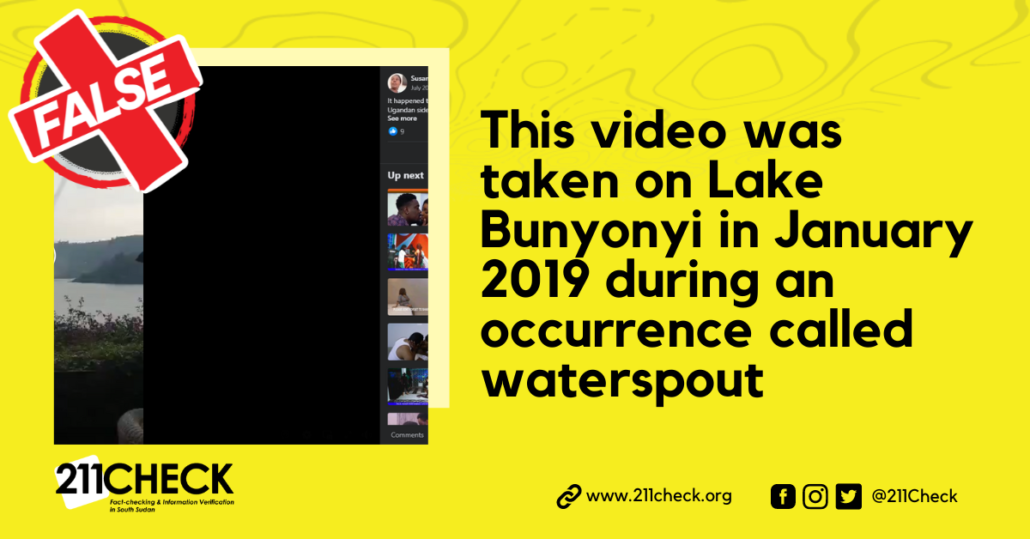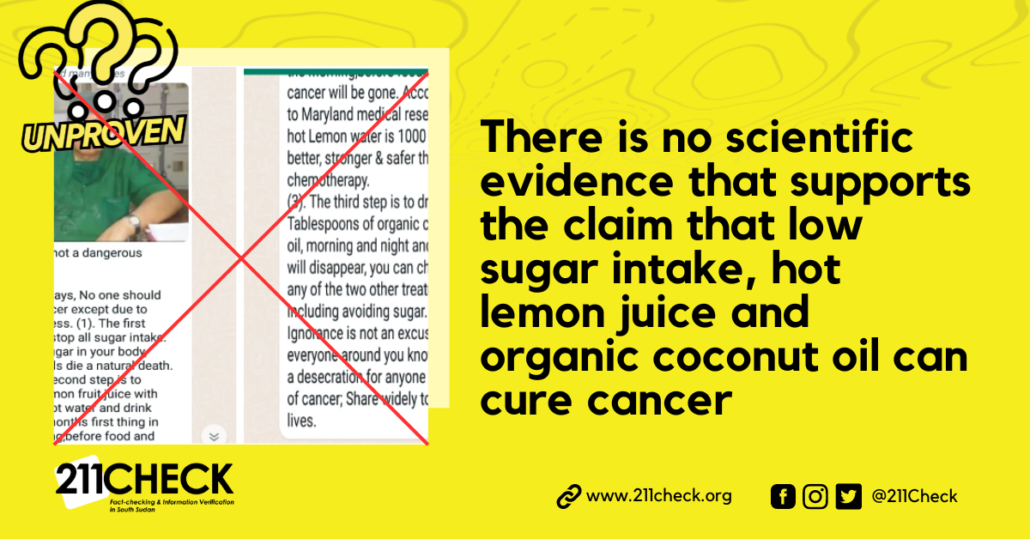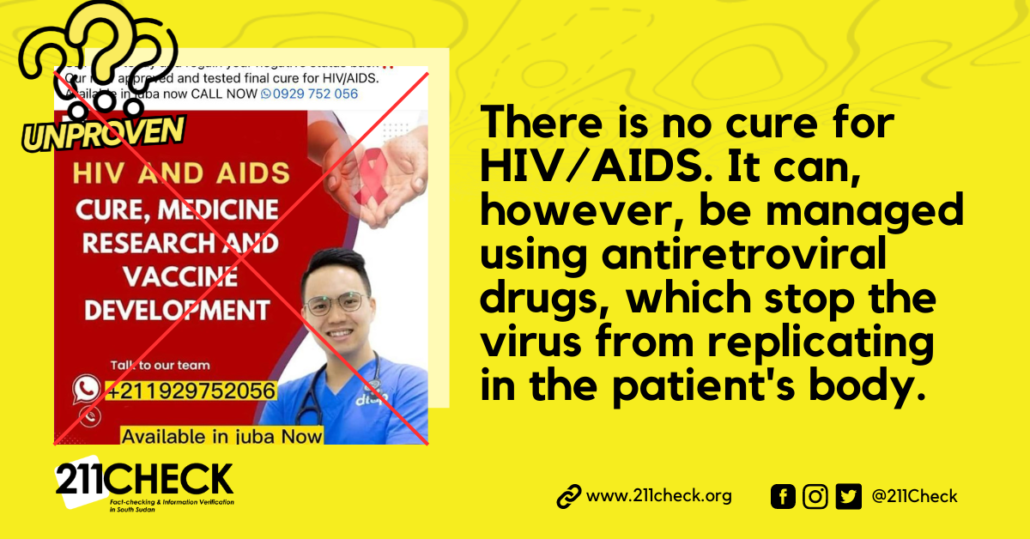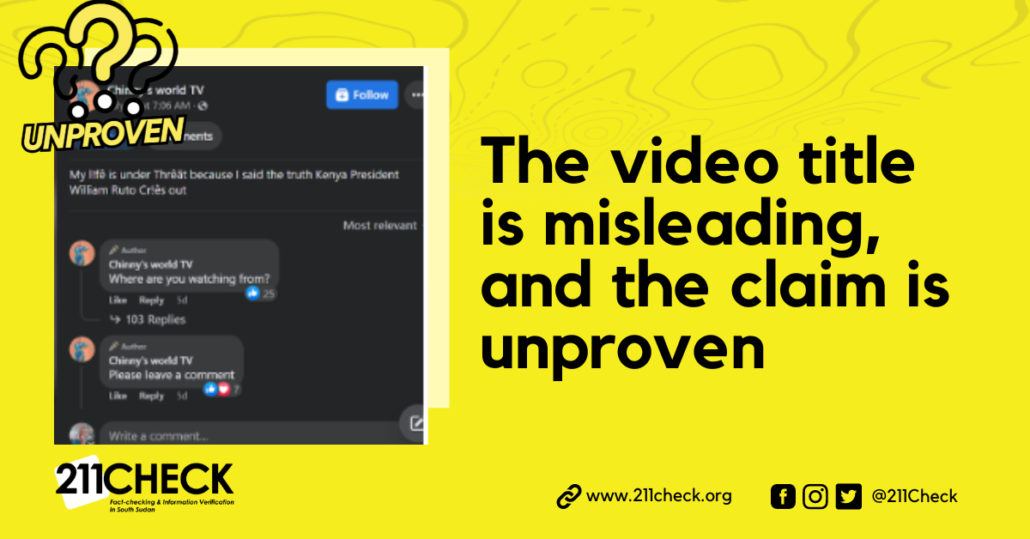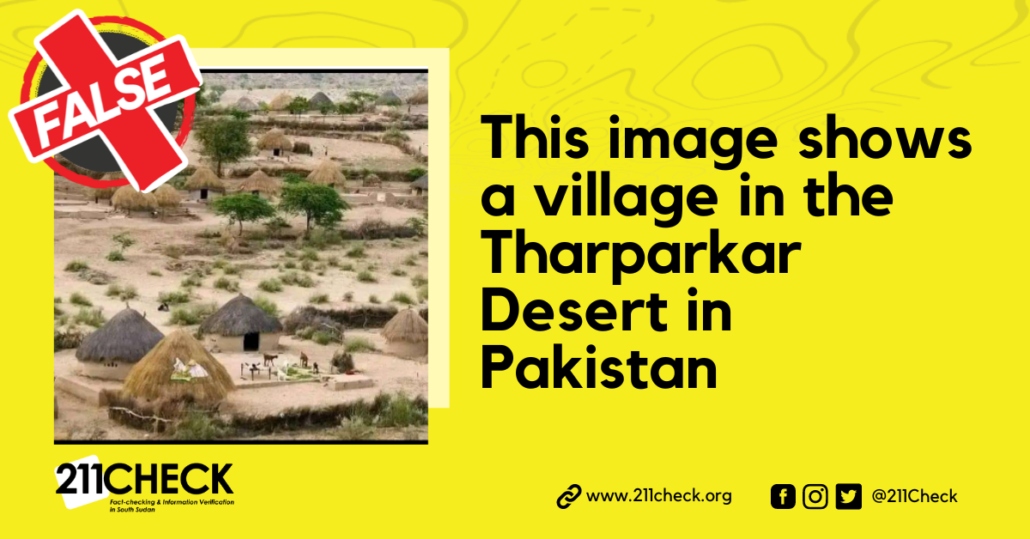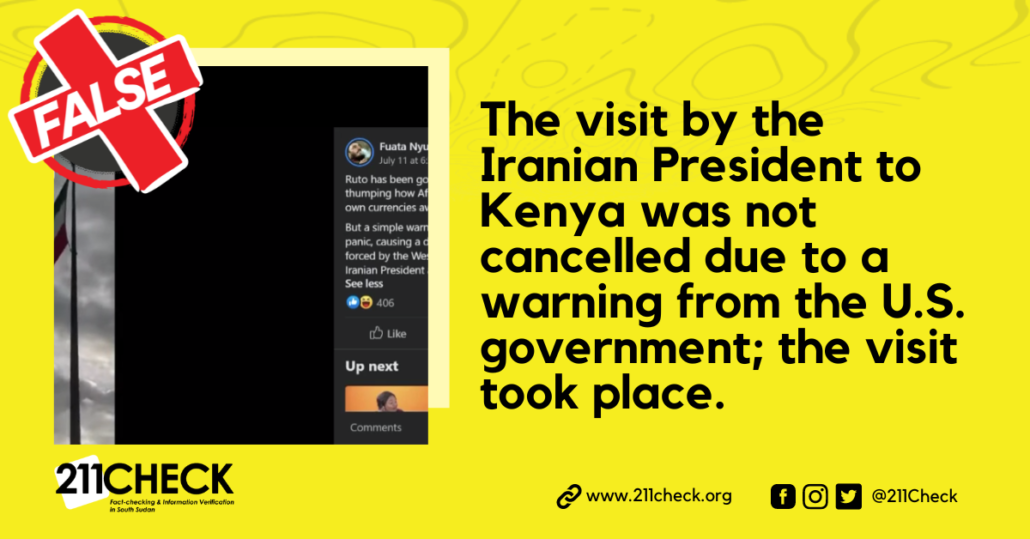Fact-check: Was this picture of a man holding a gun taken in Bugolobi, Kampala?
No, the photo shows Nakuru West MP Samuel Arama. It was taken during anti-government demonstrations in Kenya, where demonstrators attacked his hotel.
Writer: Jibi Moses
A picture of a man holding a pistol accompanying a story by the Ugandan website The Ankole Times, with the headline “Gun Drama Unfolds in Bugolobi Market, Private Security Guard Unleashes Mayhem,” is false.
The photo shows the man holding a pistol on a deserted road, with a few bodaboda men and journalists taking pictures. It also shows shopping arcades (stores) that were closed and a road that was clearly marked.
“In the not-so-bustling market of Bugolobi, a surprising turn of events unfolded when a private security guard, Aijuka Rode, decided to play cop in a local drinks and merchandise shop. Unfortunately, his aim wasn’t as impressive as his delusions of grandeur. A female shopkeeper, Mutesi Zainabu, found herself caught in the crossfire of an alleged altercation with our wannabe Rambo. Police Deputy Spokesperson Luke Owoyesigyire confirmed the less-than-heroic incident…,” partially reads the article published on July 29, 2023.
211Check Investigation:
An internet search of the keywords “A guard shoots people at Bugolobi market” returns many results confirming the incident as reported by the following media houses, here, here, here, and here.
The news reports by the media established the identities of the guard as Arode Aijuka and the victim of the shooting as Zainabu Mutesi. The incident also reportedly took place at night, raising doubts about the image used by The Ankole Times.
A Reverse Image Search of the picture shows that the image has been used on earlier dates by different users, including the Ankole Times, this time with a headline on demonstrations in Kenya. The article makes reference to a Kenyan MP brandishing a firearm at protesters.
Consequently, a keyword search using ‘MP Holds a Gun in Kenya in 2023’ produced many results showing that the man in the photo is Nakuru West Member of Parliament Samuel Arama.
The MP reportedly drew his gun when a group of demonstrators allegedly vandalised his hotel during anti-government protests on July 19, 2023. The incident was widely reported, as seen here, here, here, and here.
In a news report by Kenyans.co.ke, the MP is quoted as having said: “We are all Kenyans; we also voted for Raila, but he lost to William Ruto. Why should these people destroying property not get shot?”
Conclusion.
211 Check finds the picture used by the Ankole Times purportedly showing a guard who shot a woman in Bugolobi as false and misleading. In the picture is Nakuru West Constituency MP Samuel Arama, The image was taken during the demonstrations in Kenya, where demonstrators allegedly vandalised his hotel.
This fact check was published by 211 Check with support from Code for Africa’s PesaCheck and the African Fact-Checking Alliance.
To ensure accuracy and transparency, we at 211 Check welcome corrections from our readers. If you spot an error in this article, please request a correction using this form. Our team will review your request and make the necessary corrections immediately, if any.
It’s vital to fight misinformation and disinformation in the media by avoiding fake news. Don’t share content you’re uncertain about. False information can harm and mislead people, risking their lives. Fact-check before sharing. For more details, visit https://211check.org/ or message us on WhatsApp at +211 917 298 255. #FactsMatter


